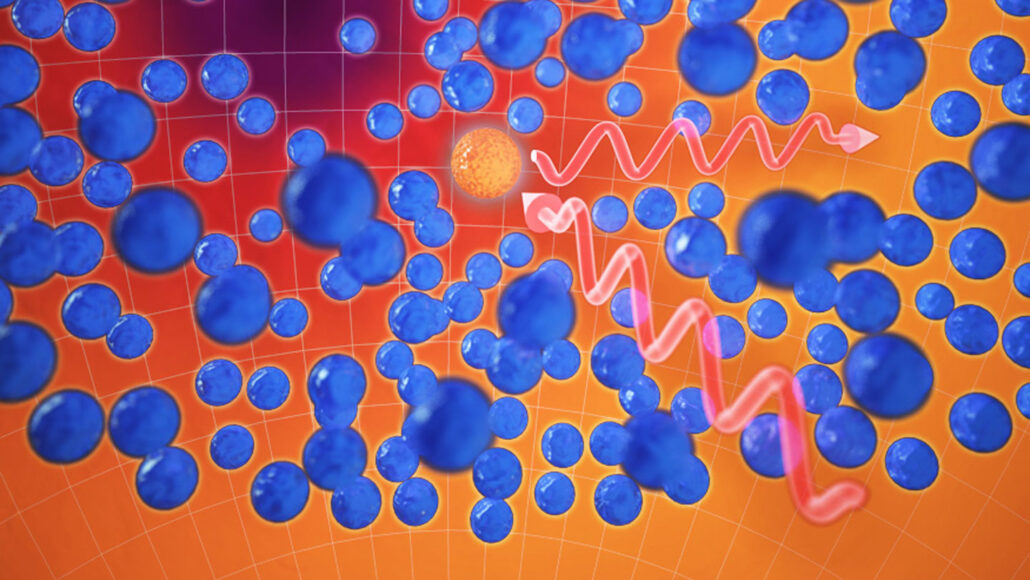HOME
Scientists finally detected a quantum effect that blocks atoms from scattering light

A cloud of ultracold atoms is like a motel with a neon “no vacancy” sign.
If a guest at the motel wants to switch rooms, they’re out of luck. No vacant rooms means there’s no choice but to stay put. Likewise, in new experiments, atoms boxed in by crowded conditions have no way to switch up their quantum states. That constraint means the atoms don’t scatter light as they normally would, three teams of researchers report in the Nov. 19 Science. Predicted more than three decades ago, this effect has now been seen for the first time.
Under normal circumstances, atoms interact readily with light. Shine a beam of light on a cloud of atoms, and they’ll scatter some of that light in all directions. This type of light scattering is a common phenomenon: It happens in Earth’s atmosphere. “We see the sky as blue because of scattered radiation from the sun,” says Yair Margalit, who was part of the team at MIT that performed one of the experiments.
But quantum physics comes to the fore in ultracold, dense atom clouds. “The way they interact with light or scatter light is different,” says physicist Amita Deb of the University of Otago in Dunedin, New Zealand, a coauthor of another of the studies.
News Source